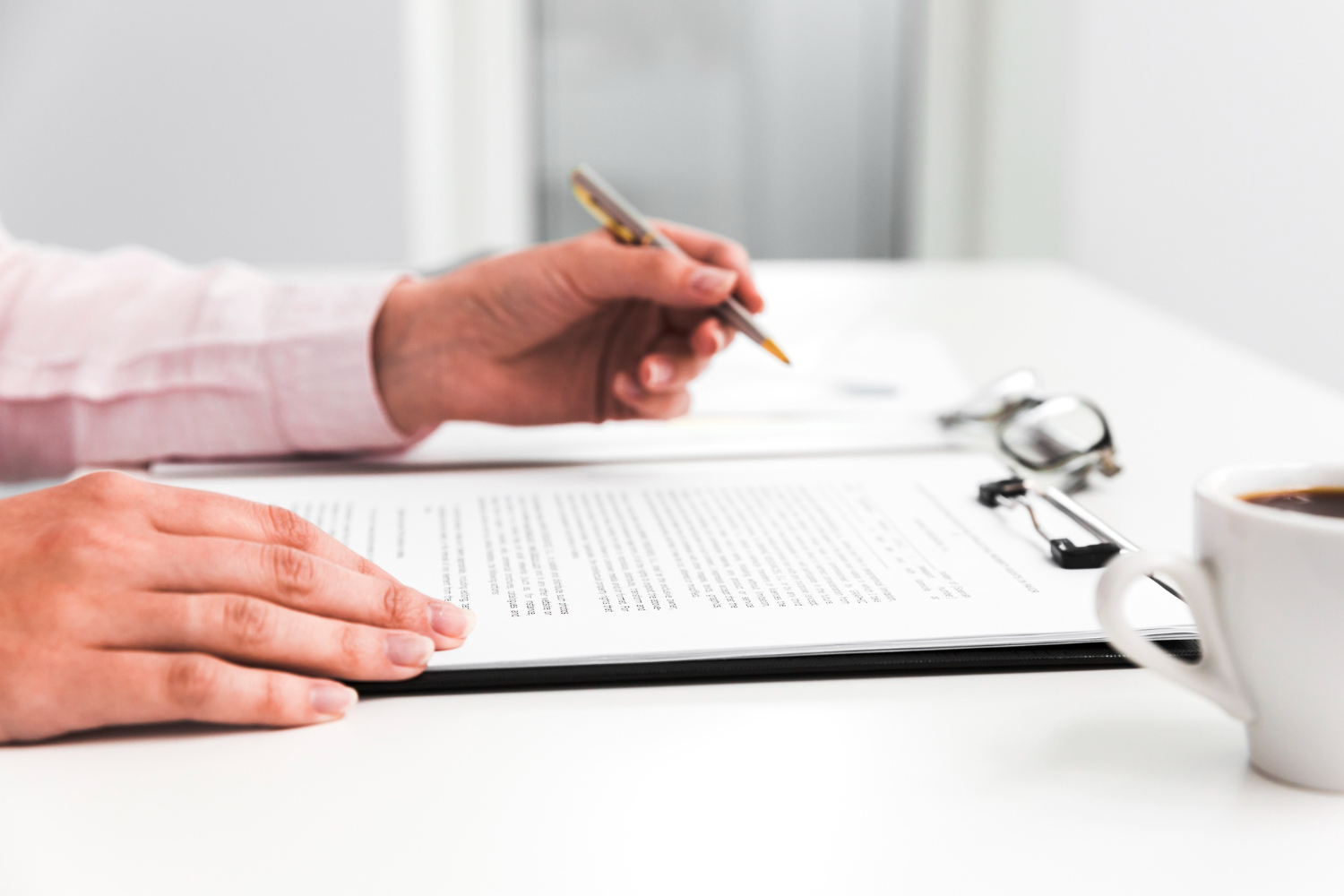
Authentication and Apostille Services in Wisconsin
Preparing your paperwork for use abroad, but getting stuck on document authentication? No worries — understanding the Wisconsin Secretary of State’s apostille process is vital, and this post will set out all you should know about authentication and apostille services there. The road to having documents recognized across borders starts today by completing this resourceful guide. Let’s get right to it!
Legal Authority & Governing Rules in Wisconsin
The State of Wisconsin apostille and authentication is governed by a specific body and guided by a clear-cut set of rules. Grasping which office is responsible and the underlying framework is key to ensuring your document authentication is legally sound and globally accepted.
Who Issues Apostilles and Authentications
The Secretary of State in Wisconsin exclusively apostilles and authenticates state public documents for international use. Whether the destination country demands an apostille under the Hague Convention or traditional legalization for nations outside the agreement, this is the single source for validating paperwork issued within the state. Hence, all requests for apostilles and authentications must go through the Secretary of State’s office to secure document validity abroad.
Applicable Laws & Regulations
The 1961 Hague Convention is the primary treaty governing the acceptance of apostilles across member countries. Within the U.S., the Wisconsin Statutes Chapter 706 and the URAA oversee notarization and certification procedures. For legalization, the DOS and the specific foreign country’s embassy collectively ensure that state authentication is legitimate for authorized use in that jurisdiction.
Apostille vs Certification (Authentication)
An apostille is distinct from a certification in simplicity and the destination country where it will be accepted. Getting an apostille requires less time and effort, as it has fewer steps than the other. It’s a standardized validation for all signatories of the Hague Convention, like Spain or Japan.
If you submit the paperwork to countries like China or the UAE, which aren’t part of the agreement, an authentication (or certification) is a must. This involves extra verification at the DOS and the foreign consular office after the state’s seal.
What Documents Are Acceptable & What Are Not
The Wisconsin apostille doesn’t apply to all documents. The Secretary of State provides clear guidance on which records can be apostilled and which can’t, and submitting an ineligible one might halt your entire authentication journey. We’ll clarify these categories in this section.
Acceptable Documents
These include a wide range of papers issued within the state, such as vital records (birth certificates and marriage licenses), educational qualifications (degrees, diplomas, and transcripts from Wisconsin institutions), and notarized documents (affidavits and powers of attorney). Court-related documents, like court orders, are also regularly processed for an apostille or authentication in Wisconsin.
Unaccepted or Restricted Documents
The state office isn’t granted the power to authenticate federal documents or those originating from other U.S. states or foreign countries. Federal paperwork, including FBI background checks and Social Security statements, must be directed to the DOS for an apostille or certification. Moreover, unqualified documents, such as photocopies or those with improper notarization, won’t be accepted by the state.
Fees, Processing Times & Options
Now, let’s move on to the more practical details — cost and timeline. Exploring the fee structure and available options gives you an advantage when submitting your apostille or authentication request. Whichever processing speed you choose, here’s a breakdown of what to anticipate about timing and fees.
Standard vs Expedited Services
Wisconsin offers both standard and rush apostille/authentication services. Standard processing speed often ranges from 7–20 business days. For cases that prioritize timing, the expedited option can reduce it to 2–4 business days at a higher cost. Selecting between these two processing tracks depends on your budget and ultimate deadline.
Cost Breakdown
The fee structure at the state office is straightforward. A standard rate of $10 per document is set for apostille and authentication requests. The expedited track asks for an extra processing fee of $25 on top of the flat rate. You’ll need to calculate the total using the number of documents and the chosen processing speed to include the exact payment in your request for an uninterrupted experience.

Step-by-Step Guide to Obtaining an Apostille or Authentication in Wisconsin
Now, are you ready to take action? Follow these sequential steps to navigate the State of Wisconsin apostille process confidently. We’ll guide you through every stage of the journey, from arranging your papers to receiving the certification.
Prepare the Document
Preparation is the most crucial phase, creating a foundation for overall success. Begin by gathering the original document or obtaining a certified copy from the issuing office. If required, ensure you have it notarized by a competent notary public, with a valid signature and seal. Before submission, scan or make a photocopy of the document for your files.
Fill Out Application/Form(s)
To request an apostille or certification service, complete a Wisconsin request form. Precision is your greatest ally at this stage — give accurate answers to all required fields. This form typically asks for your name, contact details, the document’s purpose, and the country where it will be sent. A typo on your request form might result in rejection, so spend some time reviewing the details after filling it out.
Submit Document & Pay Fee
After assembling your paperwork and completing a request form, have the package delivered to the Secretary’s office in Madison, whether by mail or in person. You must also pay the processing fee at this point, and ensure you have a correct calculation of the total charge. Several payment methods are available for selection, most commonly check and money order. For mail submission, also include a self-addressed stamped envelope for return shipping.
Receive Certified Document
Upon approval, your authenticated document will be shipped via the chosen service, or you can pick it up at the office. The paperwork bears an official apostille certificate or a state certification. Check all the information, including signature and embossed seal, to ensure everything matches. Congratulations! The document is ready to be submitted abroad and fulfill its purpose.
Common Pitfalls and How to Avoid Them
It’s not enough to safeguard an apostille or authentication just by following the above steps closely. You should be aware of these mistakes as well:
- Using documents with an improper or missing notarization seal or signature: A smudge stamp will void the paper, so double-check the notary’s seal, signature, and commission status in advance.
- Mailing delays or improper return envelopes: Don’t underestimate mailing logistics. Use a trackable shipping method for the submission and return to protect your package during transit.
- Not verifying whether the destination country is a Hague member or not: Sending an apostille to a non-member nation means starting all over again. Check the country’s status carefully right from the first day.
- Attempting to use digital notarizations when not accepted: Wisconsin doesn’t accept electronic notarization yet. An inked signature is still needed to pass the notarial assessment.
By paying these areas the attention they deserve, you can sidestep the usual hurdles when requesting document authentication.
Contact us today for fast, reliable Wisconsin apostille services and ensure your documents are accepted overseas without hassle.
FAQ:
Having more questions? Let’s take a look at some inquiries about the Wisconsin Secretary of State’s apostille here.
- How long does it take to get an apostille in Wisconsin?
Typically, you’ll receive your apostilled document in 7–20 business days if you go for standard processing and 2–4 business days for the rush option. - Can a document notarized outside Wisconsin be apostilled by Wisconsin?
No. Only documents notarized by a Wisconsin-commissioned notary public are eligible for a Wisconsin apostille. Out-of-state paperwork must be addressed to the relevant SOS. - Is translation needed if the document is not in English?
No, Wisconsin can process it if the notarization/certification is in English. The SOS may request a translation in certain cases where there’s a need to understand the content for clarification. - What if I made an error on the document after the apostille?
It will be invalid with an error. You must restart the process after obtaining a replacement or a new certified copy of your document. - Do I need an apostille for every document for the same case/country?
Yes, each document needs a separate apostille certificate to be considered valid in another country.




